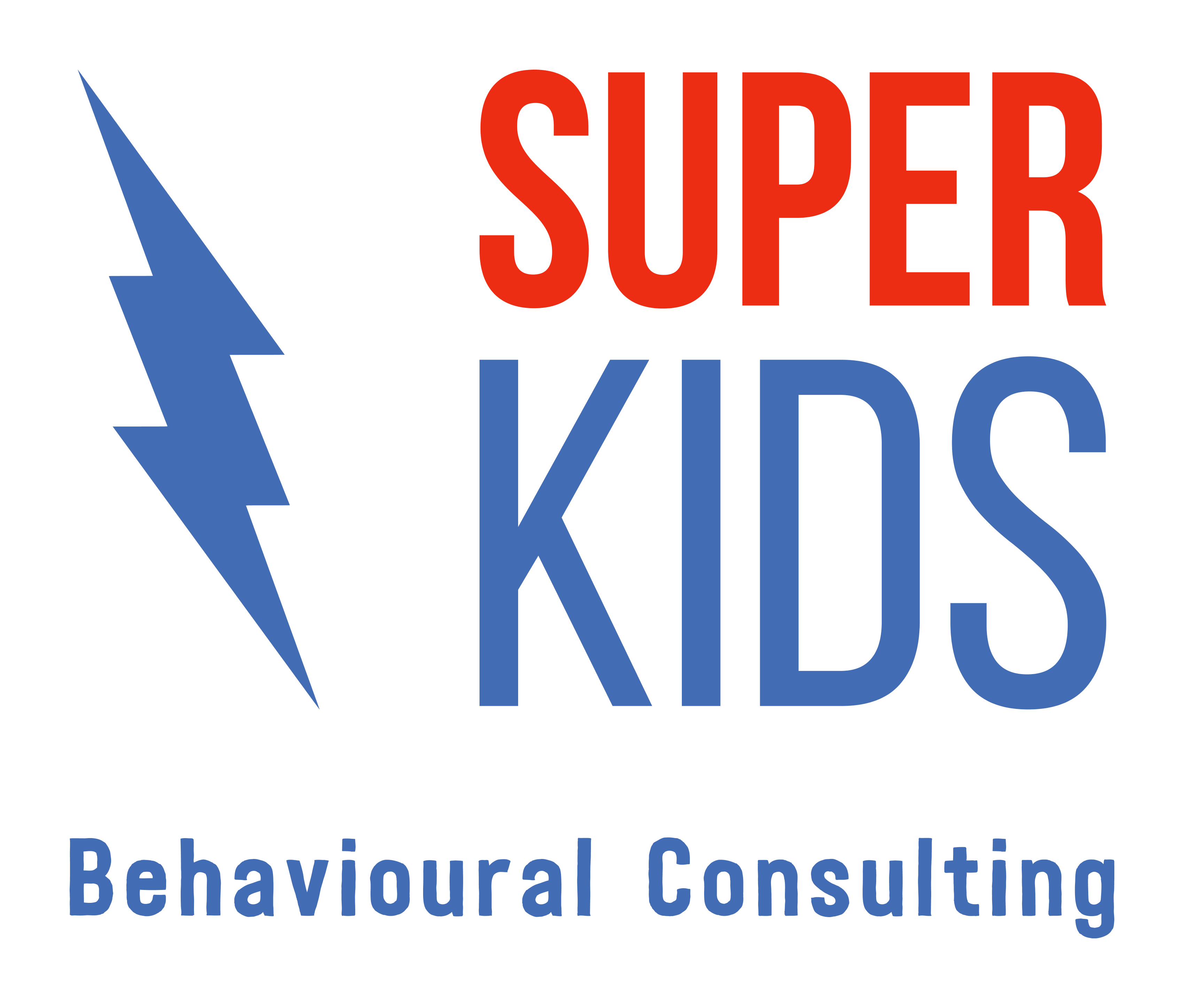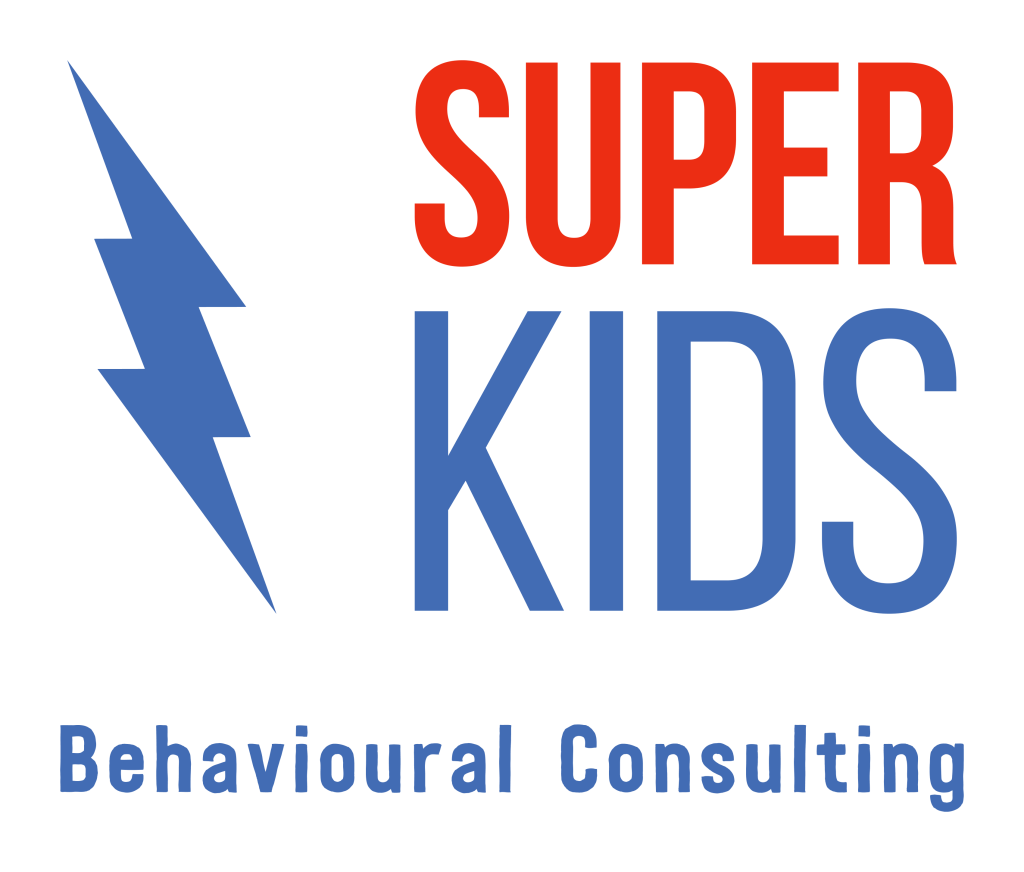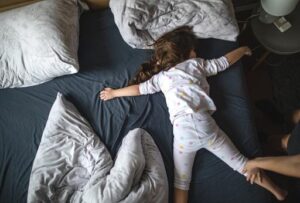Sleep and Autism

Anita Bennett-Stewart
Behavioural Sleep Specialist & Behaviour Consultant

Sleep habits of Autistic children
Sleep problems are a common concern for parents of all children. In fact, up to 50% of neurotypical children experience sleep difficulties, such as resistance to going to bed, waking often or for long periods overnight, or difficulty waking in the morning.1
However, these sleep concerns are experienced by up to 80% of Autistic children.2
Resolving sleep difficulties is important, as sleep is a critical component of our health and quality of life. Amongst Autistic children, research indicates that poor sleep is associated with significant behavioural impacts, such as higher aggression, inattention and risky behaviour.3
Poor sleep not only impacts the child, but can also impact the whole family. In fact, parents of neurodivergent children report poorer sleep than parents of neurotypical children.4 Improving sleep can not only benefit the child, but the rest of the household as well!
Although poor sleep is common amongst neurodivergent children, healthy sleep is achievable! Here are 3 steps that parents of Autistic children can take to support their child with sleep:
1. Review your child’s sleep concerns with a medical professional
Before beginning any changes to your child’s sleep routine or bedroom setting, it is critical to rule out any medical reasons for your child’s sleep issues. A medical professional, such as a General Practitioner, Pediatrician or Sleep Physician will be able to review these concerns with you and provide any further advice required.
2. Consider your child’s sleep hygiene
Once any medical causes for your child’s sleep concerns have been ruled out, you may like to consider improving your child’s sleep hygiene. “Sleep hygiene” refers to the good sleep habits your child has in place throughout the day and evening before sleep. These include:
-
- A regular sleep and wake time each day
- Avoiding caffeine, bright lighting and high activity before bedtime
- Having a quiet, dark and comfortable bedroom
- Associating the bed with sleep, rather than a playspace
- Having a consistent bedtime routine each evening
3. Reach out for help if needed!
If your child continues to have sleep difficulties, reach out to a Sleep Physician or behavioural sleep specialist for more help. A qualified, trusted professional can provide further individualised advice on how to support your child to sleep better.
Disclaimer: The advice in this article is general in nature. If your child experiences sleep difficulties, reach out to a trusted professional for further individualised advice and support.
Resources:
- Jin, C. S., Hanley, G. P, & Beaulieu, L. (2013). An individualised and comprehensive approach to treating sleep problems in young children, Journal of Applied Behaviour Analysis, 46(1), 161-180.
- Richdale, A. L., & Schreck, K. A. (2009). Sleep problems in Autism Spectrum Disorders: Prevalence, nature & possible biopsychosocial aetiologies, Sleep Medicine Reviews, 13, 403-411
- Becker, S. P., Sidol, C. A., Van Dyk, T. R., Epstein, J. N., & Beebe, D. (2017). Intraindividual variability of sleep/wake patterns in relation to child and adolescent functioning: A systematic review, Sleep Medicine Reviews, 34, 94-121
- Gallagher, S., Phillips, A. C., & Carroll, D. (2010). Parental stress is associated with poor sleep quality in parents caring for children with developmental disabilities. Journal of Pediatric Psychology, 35(7), 728-737
- Sleep Health Foundation. (2022). Sleep hygiene: good sleep habits. www.sleephealthfoundation.org.au/good-sleep-habits.html
Super Kids acknowledges each individual’s personal preference to use identity-first or person-first language to describe themselves or their loved one. We interchangeably use both language conventions and therefore refer to both Autistic children and children with Autism.






